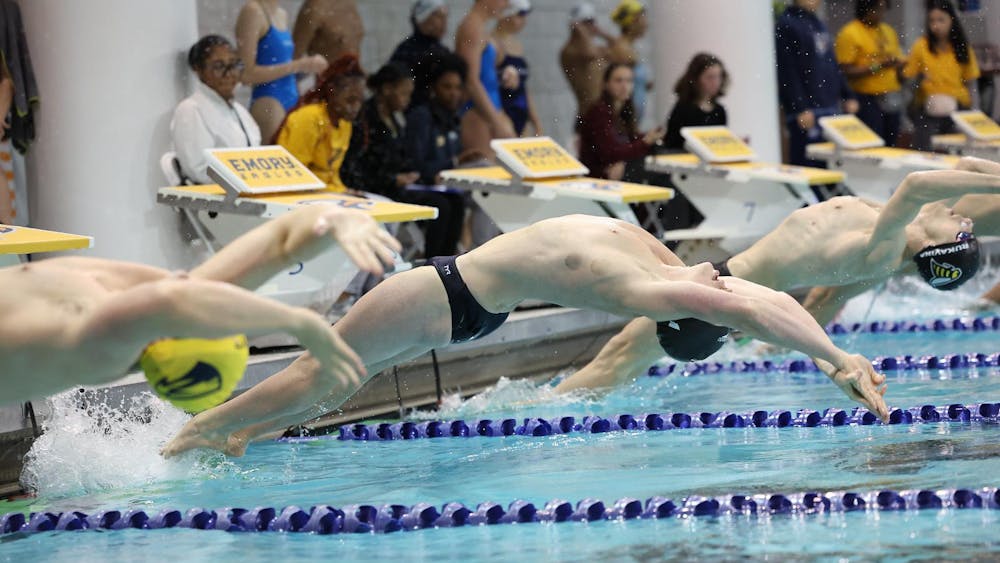On Tuesday, March 24, the Center for Women at Emory hosted “Leveling the Playing Field: Women, Sports, and Title IX,” featuring two-time Olympian and International Olympic Committee (IOC) member, Anita DeFrantz.
DeFrantz delivered the keynote address, which was the culminating event as part of the center’s Women’s History Month.
Chanel Tanner, assistant director of the Center for Women, turned to women and sports as the focus of this year’s history month.
“Female athletes are a population at Emory who we wanted to better serve,” Tanner said.
The kickoff event on Feb. 4, National Girls and Women in Sports Day, brought together middle school girls from Martin Luther King Jr. Middle School in Atlanta and Emory student athletes.
“For the day, these student-athletes served as the girls’ mentors,” Tanner said.
The keynote address by DeFrantz focused on another aspect of women and sports, Title IX.
DeFrantz, in addition to her membership in the IOC and Olympic appearances in 1976 and 1980 for rowing, was also the first female vice president of the IOC.
In addition, DeFrantz is the president of the Board of Directors of the LA84 Foundation. The foundation “funds youth sports in Southern California, trains coaches and examines the role of sport in society,” according to its website.
DeFrantz’s address focused on the legacy of Title IX. As she said, “forty years later, the fight is far from over.”
DeFrantz began by addressing the idea that access to sports is a birthright for everyone.
She believes that through sport and competition, people are bound together. And it is in sport that any person can have a “moment of excellence to build upon for the rest of their lives,” she said.
Born in Philadelphia, Pa., DeFrantz said she was lucky to have three brothers who kept her involved in sports. At the time, this was not an opportunity for most girls, especially African American girls.
Before the 1970s and the adoption of Title IX, she argued, “one-half of the population was barred from participating in sport.”
Since 1972, DeFrantz claimed that the number of female athletes in the NCAA has increased from 30,000 to 193,000. She went on to say that female participation in high school sports has increased by 900 percent.
However, as DeFrantz pointed out, opportunities in sports at the interscholastic and collegiate levels still favor males.
With that in mind, DeFrantz has worked to level out the playing field. In the 1996 Atlanta Olympics, there were 26 national teams without females. Fast forward to London in 2012, and DeFrantz said the IOC “saw the greatest number of women athletes in the history of the games, 44.2 percent.”
Her goal as honorary member of the IOC Women and Sport Commission is to achieve 50/50 gender representation at the games. Furthermore, she hopes to grant access to everyone regardless of race, class or gender.
“I will be watching,” she said. “We know it can make the difference between failure and success in life.”
Hemangini Gupta, a graduate fellow at the Center for Women, said she enjoyed listening to DeFrantz at the reception following her address.
“It was in this informal setting that she told anecdotes and discussed her struggles with larger institutional structures,” Gupta said.
Kelsey McCarty, College junior and member of the Emory women’s rugby club team expressed her gratitude for DeFrantz.
“Her passion for sports and gender equality/inclusivity within sports was truly inspiring and I identified with her desire to spread the values of mind-body excellence to people of all genders,” McCarty said.
College junior Nowmee Shehab wrote in an email to the Wheel that sports were a really big part of her childhood.
“I grew up in Bangladesh and faced very similar challenges that [DeFrantz] described," Shebab wrote. "It was really inspiring to see what a trailblazer she has been and the work she has done to make sports accessible to every child regardless of gender or class.”





